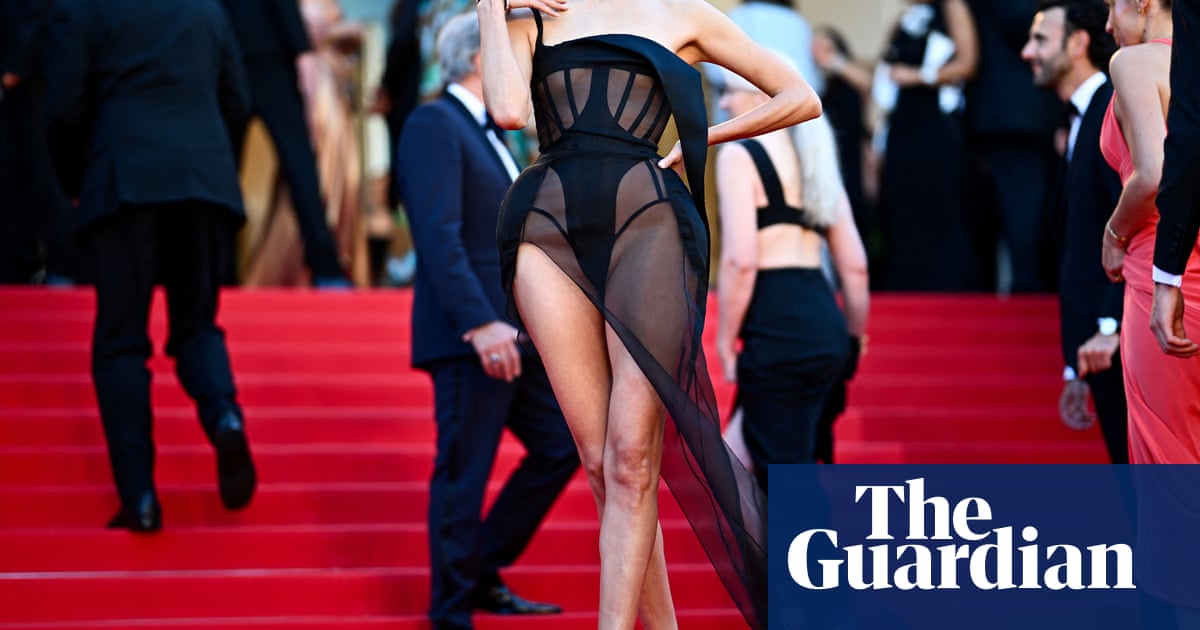Name:Naked dressing.
Age:You could say the trend goes back to Genesis …
The prog rockers at the peak of their pomp in the 1970s?Further back still, to the first book of the Bible – Adam and Eve, wandering round the garden, in the nuddy.
Until disobedience, shame, fig leaves, etc?Yes – although, recently, the trend has been the other way round.
No shame? No fig leaves?Barely any clothes at all, or that seems to be the idea behind “naked dresses” at least – concealing one’s flesh is boring, it’s all about revealing now.
Where? Who?Red carpets everywhere. And everyone. Paris Hilton ina shimmering sheer gownat a party in LA in February. Kim Kardashian has been rocking up next to naked for years. Then her ex, Kanye West’s wife Bianca Censori,took naked dressingto a whole new, (certainly chilly) level at the Grammys.
The photographs had to be pixellated, I remember. And presumably therewill be more red-carpet flesh on show at the78thCannes film festival, which starts this week.Main non, actually. The organisers have put a ban on provocative displays.
No Cannes do?Orun oeufisun oeuf, if that’s the way we’re going.
But I rememberBella Hadidwearing a see-through dress last year?Yes, Natasha Poly, Elle Fanning, Meredith Mickelson and many others have all recently been at Cannes in sheer outfits.
So why the sudden prudishness?“For decency reasons,”a festival documentstated. “Nudity is prohibited on the red carpet, as well as any other area of the festival.”
And if you flout it and flaunt it?“The festival welcoming teams will be obligated to prohibit red carpet access to anyone not respecting these rules.”
They’ll be shown the Palmedoor, you might say. So what are you allowed to wear?Black tie, evening gowns, cocktail dresses, elegant sandals “with or without heels”.
Why the specific mention of heels?Probably because of the last dress code scandal to throw Cannes into controversy. In 2015 a group of women werereportedly barred from a red carpetscreening fornotwearing high heels.
Dress up, dress down, too much, too little… the organisers need to make their minds up!Or – radical idea – just let guests dress how they want and however they feel comfortable.
A pair of (red) carpet slippers?Perfect.
Do say:“Never mind what anyone is or isn’t wearing, I’m here for thenew Spike Lee film.
Don’t say:“I am wearing a suit, it’s make of invisible fabric!”
